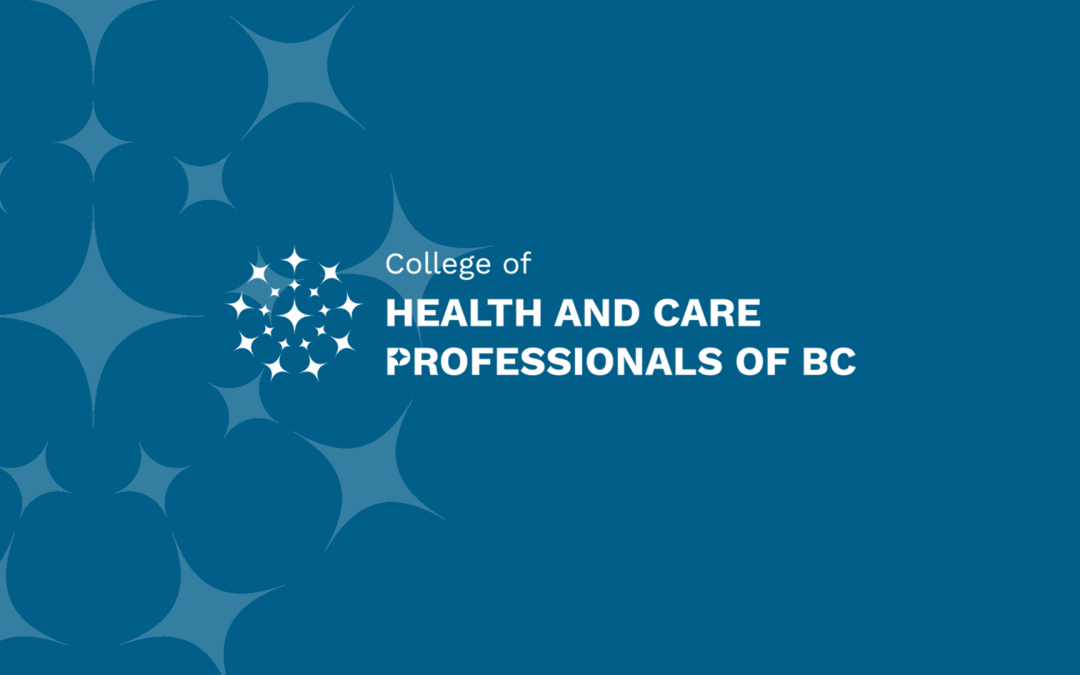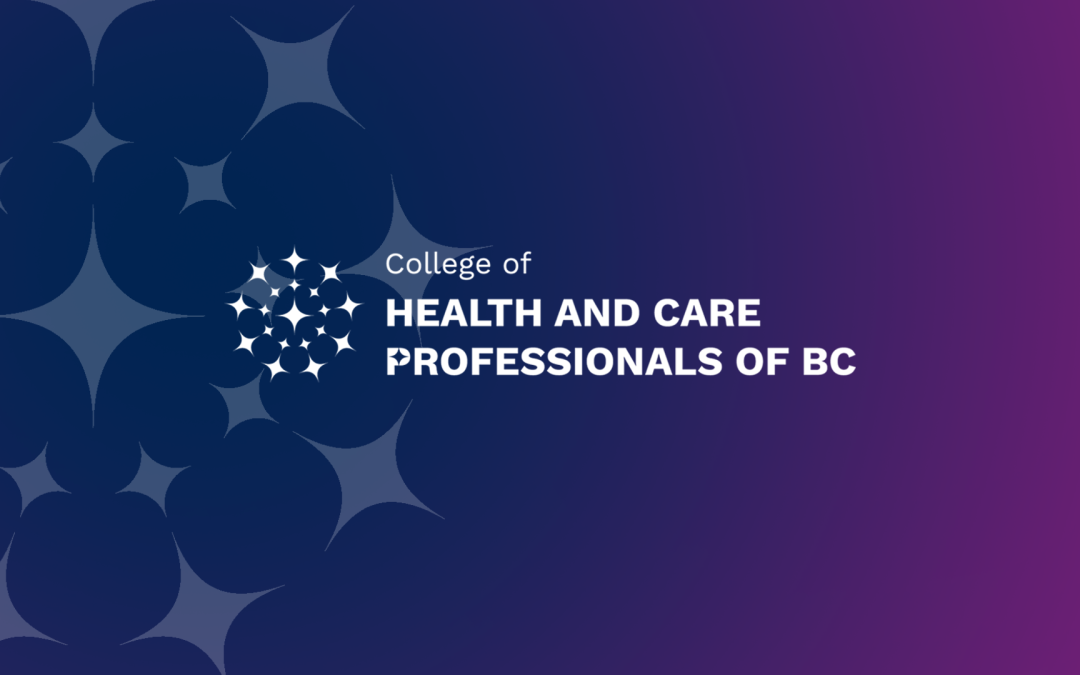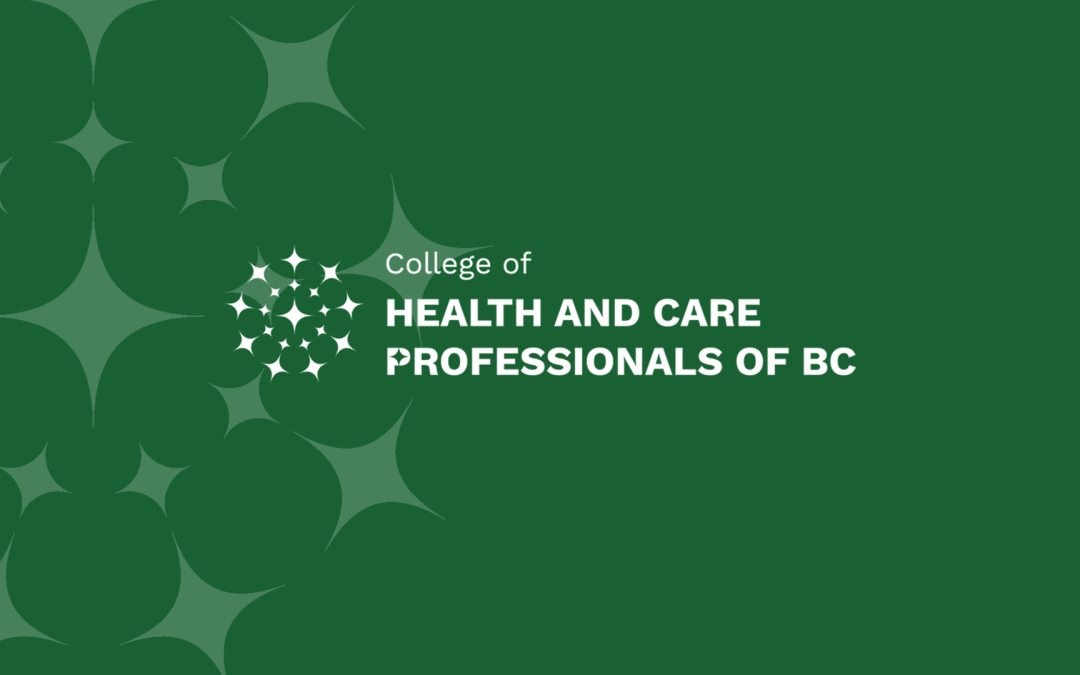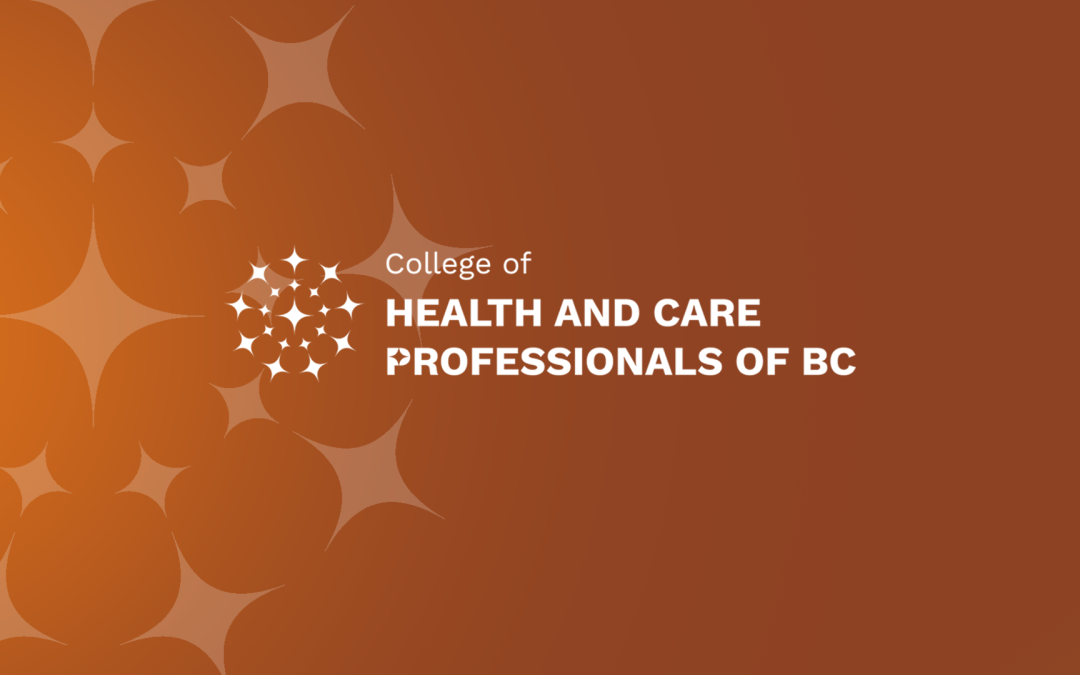Committed to the regulation of health and care professionals in BC who improve physical and mental health and well-being
Health Professions and Occupations Act (HPOA)
On April 1, 2026, the HPOA will replace the Health Professions Act as the governing legislation for regulation of health professions in BC. CHCPBC is seeking feedback on the College’s draft bylaws under the HPOA.
Licence Verification
Submit A Complaint
Public Notices
College of Health and Care Professionals of BC
The College of Health and Care Professionals of BC (CHCPBC) regulates nine health professions in BC: audiologists, dietitians, hearing instrument practitioners, occupational therapists, opticians, optometrists, physical therapists, psychologists, and speech-language pathologists. CHCPBC protects the public by ensuring that these health and care professionals have the competencies needed to practise and that they adhere to the required standards for safe and ethical care.
FOR APPLICANTS
FOR REGISTRANTS
News & Events

CHCPBC 2024/2025 Annual Report
CHCPBC has developed and posted the College’s first annual report. Titled “A New Beginning – Annual Report 2024/2025,” the report provides a comprehensive overview of CHCPBC’s first nine months of operation, from amalgamation on June 28, 2024 until March 31, 2025.

Prioritizing anti-discrimination
As we prepare to observe Orange Shirt Day and National Day for Truth and Reconciliation on Tuesday, September 30, we are also looking ahead to the implementation of the HPOA, which will weave principles of reconciliation and anti-discrimination directly into the fabric of regulation.

HPOA bylaws consultation: Continuing Professional Development and Professional Responsibilities
CHCPBC is seeking feedback on two additional parts of draft bylaws for the College under the Health Professions and Occupations Act: Continuing Professional Development and Professional Responsibilities. Feedback is due October 15, 2025.

Why is informed consent important, really?
Depending on which areas of practice or populations a health care provider may serve, establishing informed consent may be more or less straightforward, but this is not always the case.
